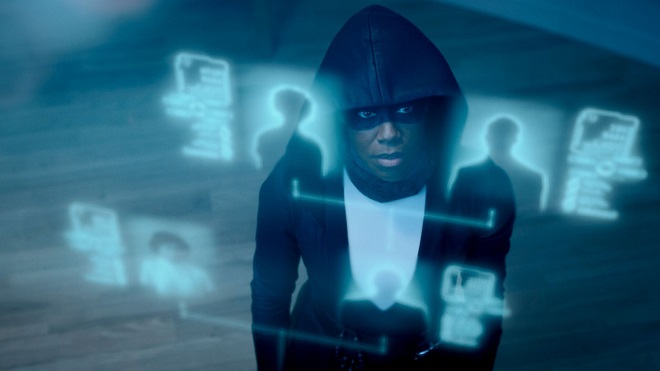Cognition Dissemination: It’s a Shame Watchmen Is Ending So Soon

The first season of HBO’s Watchmen series turned out far better than I expected. The show wasn’t a direct adaptation of the comics, but did a better job adapting its themes to the live-action format better than the 2009 film. Watchmen is a deconstruction of superhero stories that takes place in a timeline which diverges from our real world’s in the 1970s, but it could fit right into our time with the themes it tackles. You won’t find a better live-action superhero-ish work that does such a good job in tackling racism and race relations, even though its timeline is actually better than our current one in parts.
That’s why it’s a real damned shame that the first season was apparently the last. HBO programming chief Casey Bloys confirmed to USA Today that the series won’t be coming back for a second season. This wasn’t too big of a surprise considering show creator Damon Lindelof was unenthusiastic about pursuing another season in a talk with Vanity Fair in December, but this amounted to a much larger confirmation that he has little interest. He, however, gave HBO his blessing if they desired to continue it. Fortunately, HBO has chosen not to go any further without Lindelof, thanks to the history of TV shows that have gone off the rails with different creators at the helm.

HBO didn’t feel confident they could find a viable successor to Lindelof to take his place, given that the other good creators and directors are likely busy with other shows. There isn’t another show on TV at the moment that tackles tough themes in the way this show did, which makes it a pity its time in the limelight is coming to an end far too soon.
The very first incident in the Watchmen show highlights what kind of series this is: The Tulsa Race Massacre. (It’s also known as the “Tulsa Race Riot,” a name that undermines the incident.) It features African-Americans being slaughtered by the dozens by white supremacists, some in full Ku Klux Klan garb, on Black Wall Street in Tulsa, Oklahoma in 1921. It also showed exactly why we need a show like this, given the number of people who thought that event was created for the show. The state of Oklahoma and education departments around the United States have done a fantastic job burying the event in history.
It sets the tone for a show that tackles the pitiful state of race relations in the country, with the central villains being a white supremacist group known as Seventh Cavalry. They’re essentially a modernized KKK, complete with wearing masks to hide their identity. This is enough to cause some black characters in the series, including central character Angela Abar (Regina King) — also known as Sister Knight — to doubt some people around her. Fortunately, as I mentioned above, this show takes place in an alternate timeline, so it’s a good thing we don’t have to worry about dealing with anything like this anymore, huh? More mysterious occurrences also start unfolding around her, including a mysterious old man, more common themes for a TV drama… at first.

The show travels into bizarre meta territory quite a few times, until the viewer is able to piece most of it together by the end. This applies to the scenes with Ozymandias (Jeremy Irons), which seem bizarre and out of place, though nonetheless entertaining, until the full truth is unveiled. Minor parts of the show are esoteric for anyone who hasn’t paid attention to the comics, like the squid rain. But most of it is perfectly watchable for anyone unfamiliar with previous Watchmen media; it wouldn’t have received heaps of acclaim if it wasn’t.
It’s a highlight that the first season tackled issues surrounding race relations among African-Americans in America, which shouldn’t be as topical as they are these days. But a second season wouldn’t have to do the same. The comic has tackled several topics over the years, including wars and other serious issues involving people’s lives in and outside the US. But it’s also possible that comic creator Alan Moore had something to do with the series ending early, given how extremely particular he is with adaptations of his work. The man disowned the TV series before it even started production. It’s not too difficult to blame him given how the movie adaptation turned out, which received mixed impressions (I’ll leave it there, thanks), but it’s a shame it has to be this way.
HBO will likely be fine in the long run, despite their continuing efforts to find another Game of Thrones-level phenomenon of a show. The same goes for Damon Lindelof and actors like Regina King, Jean Smart, Yahya Abdul-Mateen II, and Jeremy Irons. Part of me is sad the show had to end here, but the other part realizes that not every show needs a continuation. It speaks to HBO’s good decision-making that they put the show on ice instead of continuing it with a new staff — just imagine what would have happened here if another network knew they had a potential moneymaker here. Maybe another show will come along that inherits similar themes, on HBO or otherwise. But it would be best if you don’t bet on that.





